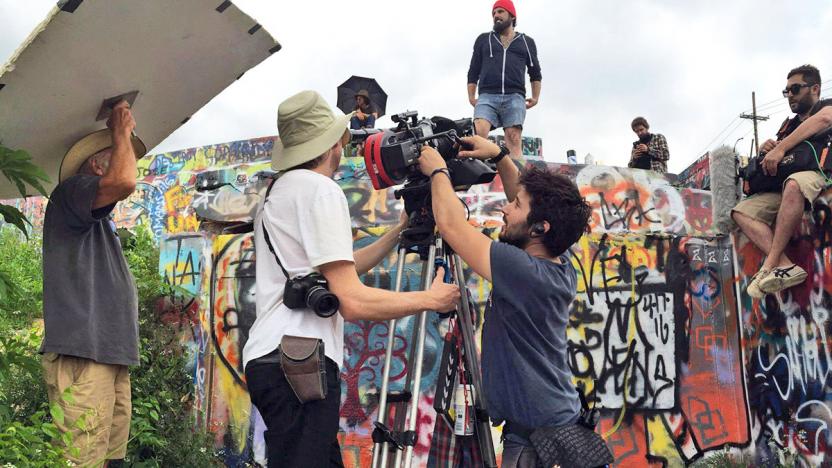16mm
Latest

Kodak is giving free film to Kickstarter directors
Crowdfunded filmmakers will be able to shoot on film for a lot less money thanks to a partnership between Kodak and Kickstarter. Kodak says it will provide free 35mm or Super 16mm film stock for select projects, up to a total of around $20,000 for 35mm film, depending on the total budget. Beyond that, the company will provide discounted film and mentoring for packaging, financing and sales strategies. The choice of filmmakers appears to be at Kodak's discretion, but so far the company has picked several Kickstarter productions that will launch this spring.

Sony Alpha NEX cameras now up for pre-order, start at $549 in US, €499 in Europe (updated)
Listen, you've had enough time to think on it -- just over 24 hours, to be less imprecise -- and now it's time to make a monetary decision on Sony's Alpha NEX-3 / 5 interchangeable lens cameras. Pre-orders are now being accepted via the online Sony Style store; each camera comes as a kit with either the 16mm lens, or for an extra $50 the 18-55mm. Thus, we're looking at a minimum of $549.99 for the NEX-3 with 16mm, up to a penny under $700 for the NEX-5 with the more versatile eye. Lenses aren't yet sold separately, so make your choice wisely, and while you can gawk at the accessories -- optical viewfinder, A-mount lens adapter, and stereo mic, among others -- they're not yet taking your credit card details for anything but the kit right now. What's that... you wanted the camcorder? Keep dreaming, for now. [Thanks, Julio] Update: The NEX-5 and NEX-3 are now also available for pre-order in Europe (kitted out with the 16mm glass) at price points of €599 and €499, respectively. [Thanks, Edin]

Your average inkjet can now print Super 8 / 16mm film
No doubt about it, vanilla inkjets seem to be garnering a whole lot of attention these days, and while the latest trick won't yield circuits or OLED displays, it could make filmmakers who long for days past quite excited. Jesse England has apparently discovered a fairly easy to automate process to print video frames onto transparency film. After discovering the dimensions for both Super 8 and 16-millimeter film, he simply made a template, arranged the filmstrip using Adobe's Premier and Photoshop, and printed it out on an everyday Epson inkjet. The noticeably manual task of punching out sprocket holes was still left to a hand-powered box cutter, but we're sure there are less tedious solutions just waiting to be implemented. As expected, the actual video quality was deemed "terrible," but the emotional impact was bittersweet indeed. Be sure to hit the read link for the whole low-down and to see a couple of video demonstrations to show you what the fuss is all about.[Via BoingBoing]

